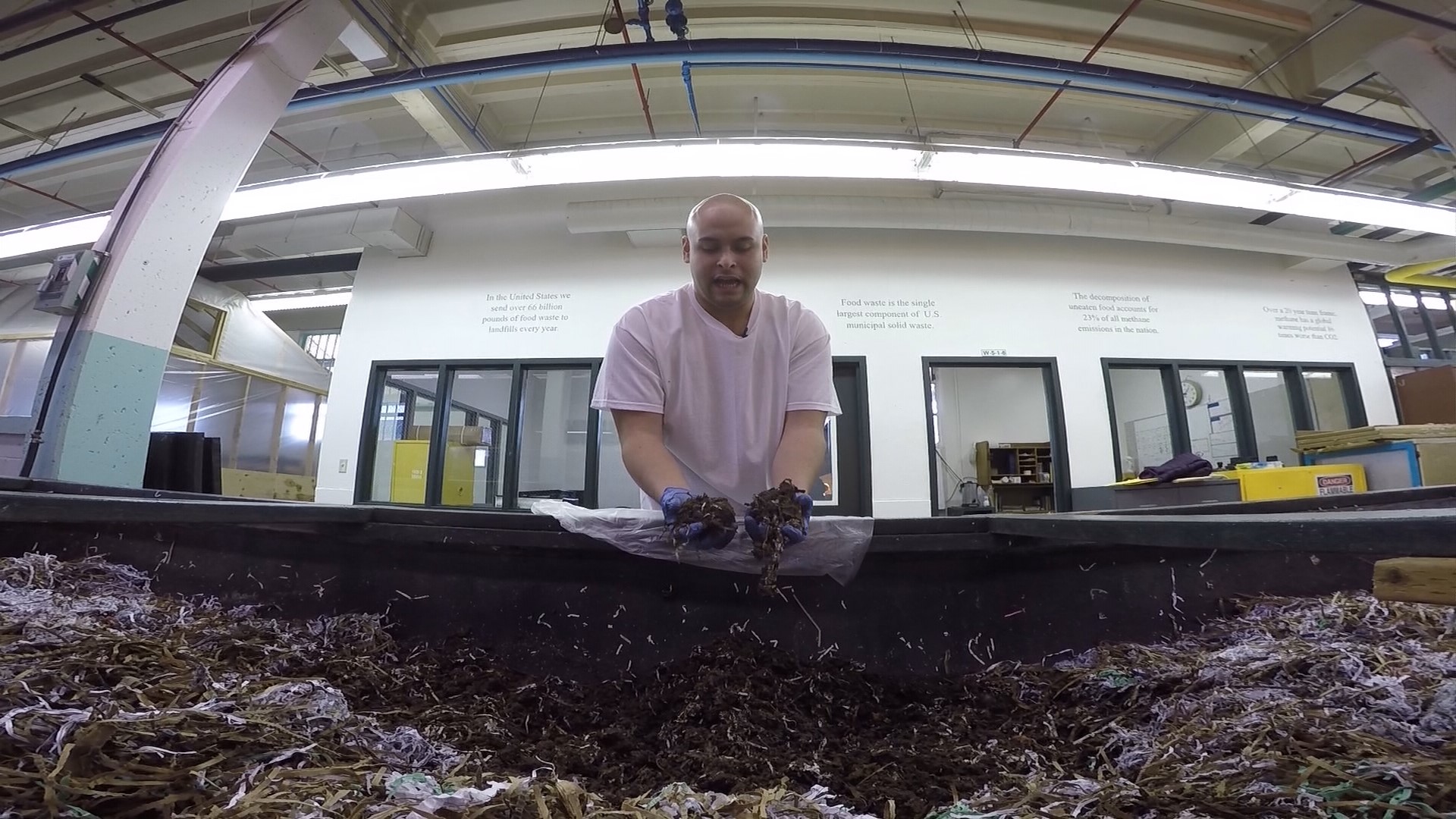Worms can change the world, or at least that's what inmates at the Monroe Correctional Complex are learning.
"We basically give these guys a nice stir. It's basically to wake the worms up," Juan Hernandez said. "We give them a nice little tossing to get the air in and release gasses down there. Get the guys going. They love to be tossed around and moved around. It wakes them up."
Hernandez is part of the prison's vermiculture program. Vermiculture just means using worms to turn food waste into compost. The program was started to help inmates learn a skill while also recycling the prison's food waste.
The secret is the red wiggler worm.
"They don't get as big as night crawlers or earthworms, but they pack a punch. They're ferocious eaters," Hernandez said. "For their size, they eat incredible amounts of food."
The worms eat the food waste and then, well, leave a gift. The fancy word is "castings".
"Everything you see in here is not dirt. We didn't add any dirt. Worms are the only creatures in the world that make dirt. This right here that looks like dirt is their castings, which is a nice way to say poop," Hernandez laughed. "This is a bunch of fertilizer."
Hernandez calls the red wiggler worms the workhorse of the composting world. He also kind of sees them like friends. In a gang as a teenager, Hernandez was convicted of murder and will spend twenty years in jail. That will be half his life behind bars.
And he credits the worms with saving his future life outside prison.
"Before you know it I fell in love with these guys. They're really important," he said. "It's given me a purpose. To find a way and get out there and change the world. I'm trying to change the world and see how sustainability goes and I believe I'm the person to do that."
Hernandez and his fellow vermiculture partner, Rudy Madrigal, received graduation certificates for their hard work.
Hernandez plans to use his vermiculture skills for a job someday. He can't believe how his original opinion of worms has changed.
"For bait? For fish bait I guess. I came here and started learning about what they do and their purpose and it blew my mind. Now I appreciate them so much. I'll be walking down the breezeway and I'll see a worm in the rain and I'll pick him up and throw him back into the grass because I don't want him to get hurt. They're so important to the world."
The program is a partnership of Tilth Alliance and the Sustainability in Prisons Project.
"I believe that we not only recycle food, but we recycle people," Hernandez said.
For more information on how to use worms to compost your food waste, visit tilthalliance.org and gardenhotline.org.


